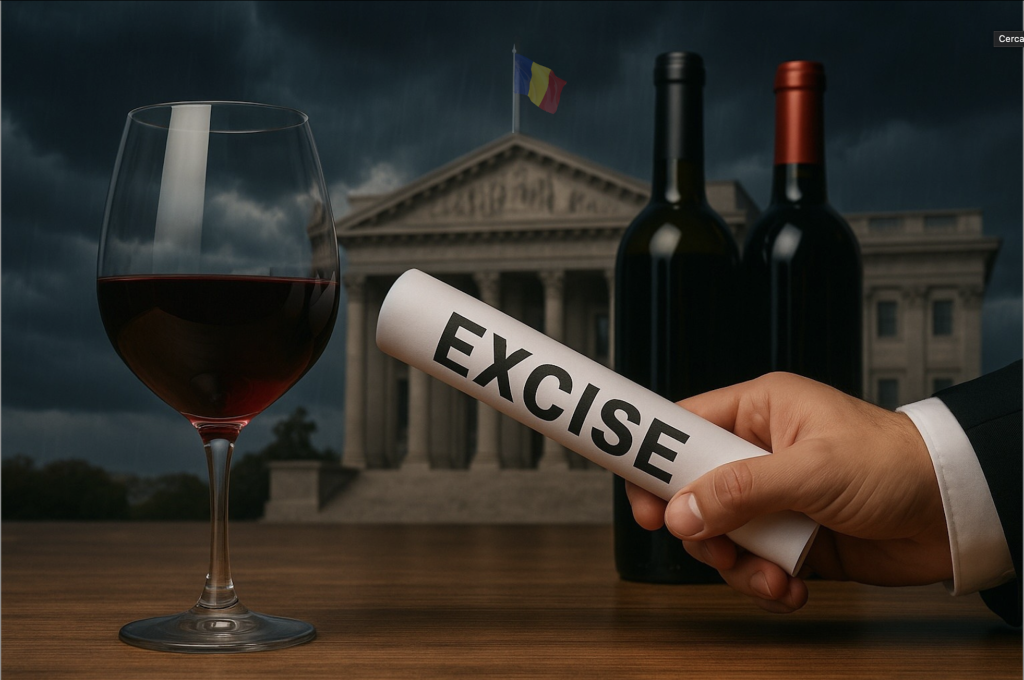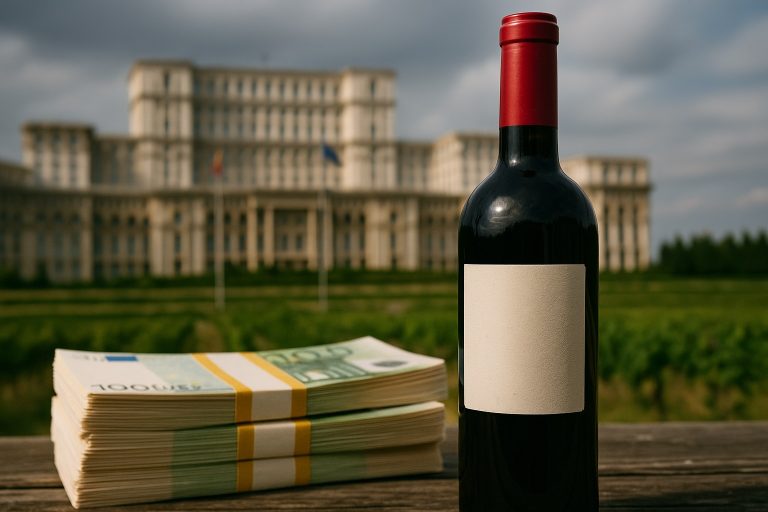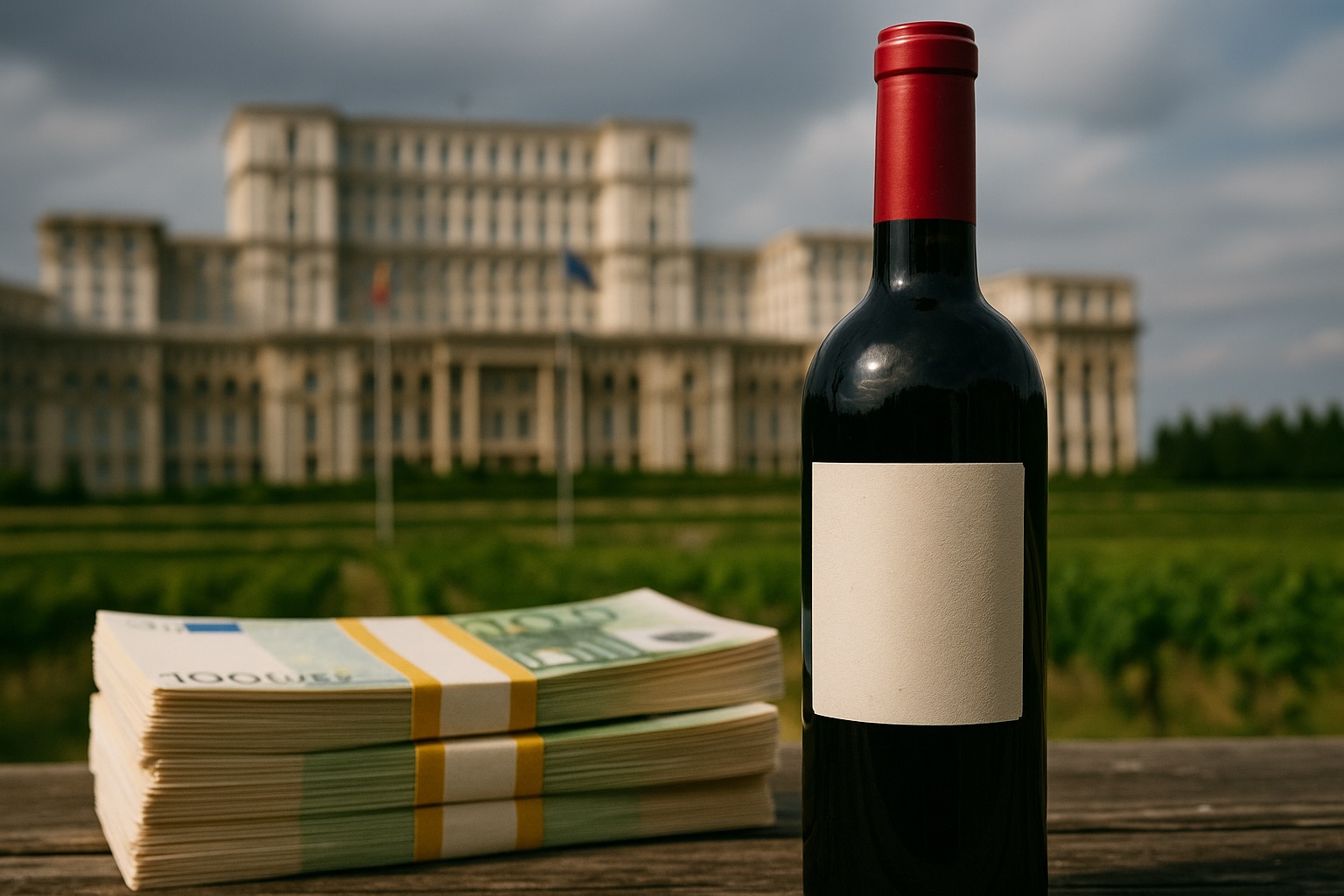
The excise that has stirred public outrage in recent days, estimated at around 80 lei per hectoliter of wine, now appears to be about eight times lower than initially expected.
The Eternal Game of Fiscal Intimidation: The Government Promises a Storm but Brings Only a Few Drops
The excise that provoked the recent reaction from APEV, widely echoed by the press and embraced by wine lovers, now seems to have been just another one of the government’s classic scare tactics. Instead of beating us with a club, they used a twig. The megawatt didn’t increase 15 times, just twice. Gasoline didn’t triple in price—it merely dropped by 15%, and there are surely countless similar examples…
All this, while a year ago, the enforcement of court-ordered debts owed by Dan Voiculescu was permanently suspended, after recovering just about €18 million from a total of €80 million. One case, one name, randomly chosen from the sea of identical cases with different names. Yet the unrecovered damage from this single case is five times higher than what the government hopes to raise from the wine excise.
A Fiscal Storm for a Glass of Wine
Yes, the wine excise will be small, so small that it will generate around 70–80 million lei for the budget, about as much as the EU has spent equipping two or three decent-sized wineries. Or the kind of money that could have easily been obtained through better management of PNRR funds.
Or from gambling, where organised crime launders money, systemic bribes are hidden, and the marginalised pour in their last hopes. The promised increase in gambling excise from 3% to 10% ended up being just one percentage point. Meanwhile, in 2024, Romanians reportedly gambled over 15 billion lei.
Or we might consider the 44 major taxpayers who together owed 3.23 billion lei. Or the dozens—if not hundreds—of reasonable solutions proposed in traditional and social media in recent weeks. One thing is certain: the wine excise won’t help the budget—it will only give politicians yet another arbitrary lever to use in the future.
Why the Excise Is Not a “Lesser Evil,” but a Strategic Mistake for the Nation
The problem with the excise is not its size, but its very existence. Just like with the concept of the "lesser evil," which assumes the natural presence of evil and leads us to talk only about how much of it we can tolerate, instead of rejecting it outright. If at least one of the many governments we’ve had so far had understood that Romanian wine is a strategic product of national importance, perhaps we wouldn’t be in this situation.
But they all preferred to keep “the dagger behind their back”—a zero excise that can be turned into 10% or even 1,000% depending on the budget’s appetite. The lesser evil that everyone quietly accepted was the mere presence of the excise. And yes, other countries have excise taxes too—we know. But those countries also have many other things we lack, including centuries-old ongoing marketing campaigns.
Romanian wine has only recently been reborn. It is the only sector that has fully absorbed all available European funds. It has created meaningful jobs and helped retain young people in otherwise disadvantaged rural areas. Today, it’s beginning to grow laterally as well, interweaving with gastronomy and tourism. Wine tourism could become the engine that revives many local crafts and traditions.
Wine is a cultural product with a deep identity. It carries within it the history of the land and its people. Anyone who has learned to appreciate wine knows this. Every country that produces good wine turns it into a symbol in its relationship with the world. Romania has yet to manage this, even though every year, hundreds of gold, grand gold, double gold, or diamond medals are awarded to our winemakers.
What Can the Government Still Do with the Excise Money?
The only decent thing the government can do now is to direct all the revenue from the wine excise toward supporting the wine industry, so we can avoid the humiliating situations we’ve faced before. So we don’t find ourselves again with ARICE cutting funding for a trade fair three months beforehand, leaving producers scrambling at the last minute. Or showing up at Bordeaux with a reserved booth that no one paid for, or having the lights turned off at the stand in Düsseldorf. It would be far better if those few million lei were invested in professional communication materials, in organising high-impact events, or at the very least, used in a way that helps rather than hinders producers.
What Does Romanian Wine Need?
With or without excises, Romanian wine needs what the entire Romanian business environment needs: respect from the state’s institutions.
Because if that respect were felt, it would translate into predictability, reduced bureaucracy, coherence, and at the very least, a declared willingness to support.
The government and its budget depend entirely on the private sector. Hindering a field that was just starting to flourish is irresponsible.
There’s an old saying: “You catch more flies with a spoonful of honey than with a bucket of vinegar.” With support, Romanian wine could bring infinitely more benefits to the state budget than an excise that does nothing but threaten a once-promising future.

Conclusion
To sum up, here are a few points that, from our perspective, are clear—and we encourage you to send us your thoughts on this matter. Unfortunately, no government so far seems to have fully understood them:
- Wine is a strategic product for Romania.
- The wine industry has grown immensely in recent years—at a pace matched only, perhaps, by IT.
- Wine is an exceptional ambassador, and the quality and diversity of Romanian wine can contribute not just to the country’s image, but also to balancing the trade deficit.
- The excise should never have existed. And if it was inevitable (alcohol, after all), it should have always been zero.
- The revenues from this excise are negligible, but the message the government is sending is deeply concerning.
- If it must exist, the excise should be used to support the wine industry.
📩 Tell us what you think!
Write to us at info@winesofromania.com or send us a message on Facebook, LinkedIn, or Instagram. Together, we can support Romanian wine and the voices in the industry that deserve to be heard.






